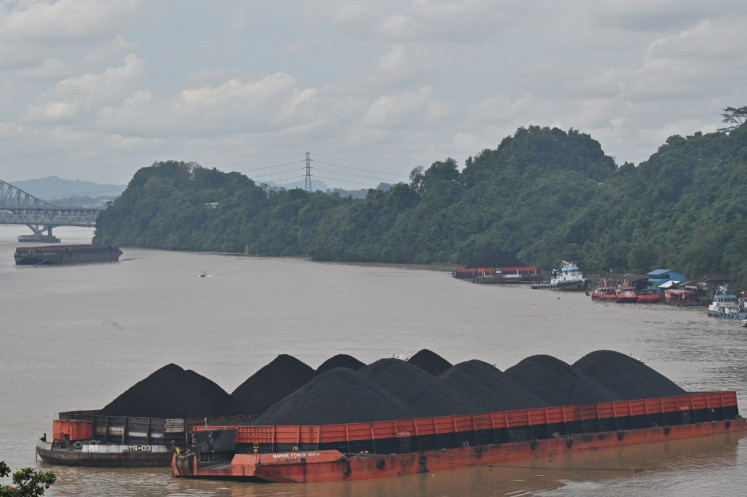Your letters: Our environment on this planet
The white coats tell us that Tibet is still rising at a rate of two centimeters every year, and that Indonesia is sinking and, very slowly, dragging Australia down with it
Change text size
Gift Premium Articles
to Anyone

T
he white coats tell us that Tibet is still rising at a rate of two centimeters every year, and that Indonesia is sinking and, very slowly, dragging Australia down with it.
This is the work of tectonic plates, and when Jakarta is totally under the ocean its flooding problems will be no more.
This moving planet, in more ways than one, is quite fascinating, and of course its movements and moods are way beyond our control.
Extensive study of life and how it apparently came about would likely leave students with far more questions than answers, as, despite our intelligence, we know very little about it all.
Over the centuries certain individuals with undoubted ability have discovered and revealed some of life's mysteries, such that now we know a lot more but are still confused.
There is little doubt that most of our world is so small in its intricate parts and we have reached a stage where our future understanding has become so complex that only a few people are able to grasp its meaning and implications.
Discoveries and acquiring greater knowledge are only useful if they are of benefit to the human race, and so things like where we came from and how the universe began (if in fact it had a beginning) are only of interest to some people for various reasons.
Perhaps an example of our ignorance would be global warming and this depends on which expert you are talking to.
It is a problem we need to not only recognize, but also act upon.
If we look at all the data we have on the Earth's known cycles then we know that forecasting future climatic events would be hit and miss at best, and potluck the norm.
One of the greatest problems we face is that the earth and its changes are predictably unpredictable and we have to accept this uncertainty.
But we don't have to except environmental destruction, we can do something.
One of these days it is hopeful that the human race will come to terms with its greed mentality, but for that we may have to wait until a climatic catastrophe has swallowed up half of the planet's inhabitants.
Most educated people already know that eventually earth will be no more, so why are we in such a tearing rush to escalate this clearly unwanted extinction event?
Homo sapiens have been on the planet for just one-10th of 1 percent of the total life of earth, but in that blip of time in our so-called efforts to progress, we have clearly destroyed and polluted far more than we have developed.
Megacities, hand phones, iPods, a Prada handbag and a Lamborghini car are not things I would include in planetary progress as it is our environment that needs to be at the top of everyone's priority list.
I hold little hope for planet Google as everyone I see is staring at screens of various sizes, even those on motorbikes, people who no doubt are on the cutting edge of life.
In the meantime, the Himalayas continue to rise, my billions of bacteria cells fly aimlessly about, the Minnesota trumpeter swan (Cygnus buccinator) awaits its inevitable extinction, and slash and burn is rumored to become an Olympic event. What a wonderful world we are destroying.
David Wallis
Medan









